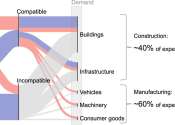How to optimize EV charging locations
Consumer interest in electric vehicles (EVs) is rising, but the lack of charging stations is a continuing concern to potential customers. No U.S. counties currently have a charging infrastructure that can deliver power equal ...
Jan 3, 2024
0
9









